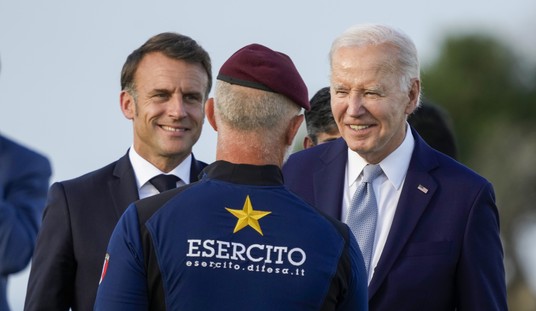After the selection of a spiritual leader for their new mullah instead of a battle-hardened jihadi, the Obama administration is holding onto hope they might convince the terror group to accept a peace deal with the Afghan government.
But not 24 hours after announcing their new emir, the Taliban sent a message, if through unauthorized channels: No way.
The Taliban named their new leader four days after Mullah Mansour was killed in a U.S. drone strike while driving through Pakistan. One of Mansour’s two deputies, Haibatullah Akhundzada, got the nod.
The group said in a statement acknowledging Mansour’s “martyrdom” that his death would only increase their “steadfastness.”
They said Akhundzada was approved by “consent of all the Shura members” and called it a “religious duty” to continue the Taliban mission of establishing an Islamic emirate.
In audio released to media by Taliban commanders today, a voice purportedly that of Akhundzada says, “No, no we will not come to any type of peace talks.” The Taliban’s official spokesman later said the audio was not cleared for release and they were trying to determine who gave it to reporters.
The State Department confirmed today that Akhundzada, who holds considerable sway over madrasas in Balochistan, the Pakistani region where Mansour was killed, and was administrative assistant to previous Taliban leader Mullah Omar, is not designated as a terrorist by the United States.
Asked for the U.S. reaction to the new leader rejecting a peace deal, spokesman Mark Toner replied, “He has rejected the peace process?”
“You know, we would hope that he would seize the opportunity. He does have an opportunity in front of him to choose peace and to work towards a negotiated solution. We hope that he makes that choice now,” Toner said.
Asked if the new mullah is next on the drone strike list if he doesn’t accept a peace deal, the State Department spokesman responded, “I’m not going to predict who we might target in the national security interest of the United States.”
Mansour had recently launched Operation Omari, the Taliban spring offensive named in honor of Mullah Omar.
Haibatullah is a cleric known for his Quranic interpretations and was entrusted by Mullah Omar to give the last word on fatwas, particularly those justifying terrorist operations. He was a leader of the judiciary when the Taliban ruled Afghanistan.
He’s been active in day-to-day Taliban operations and his name was already floated as a likely, seamless successor should something happen to Mullah Mansour. Another front-runner was Mullah Omar’s son, Mullah Yaqoob — who isn’t even 30 years old but reportedly runs Taliban military ops in 15 provinces.
Sirajuddin Haqqani, who was Mansour’s other deputy, and Yaqoob were named Akhundzada’s deputies.
Defense Secretary Ashton Carter told reporters today that “we’ll have to see what new Taliban leadership concludes.”
“Obviously, the conclusion that they should draw is that they can not win… a sensible leader of the Taliban would conclude that they can’t succeed by arms alone,” Carter said. “We’ll see whether this individual makes that conclusion or not. Obviously, his predecessor didn’t draw that conclusion.”
President Obama declared Mansour’s assassination “an important milestone in our longstanding effort to bring peace and prosperity to Afghanistan” — in hopes that a new mullah would be more open to a peace deal long pushed by the White House.
“The Taliban should seize the opportunity to pursue the only real path for ending this long conflict – joining the Afghan government in a reconciliation process that leads to lasting peace and stability,” Obama said Monday.









Join the conversation as a VIP Member